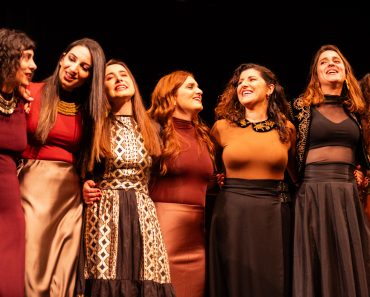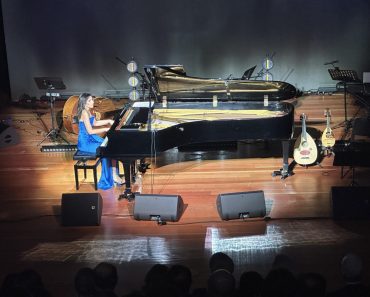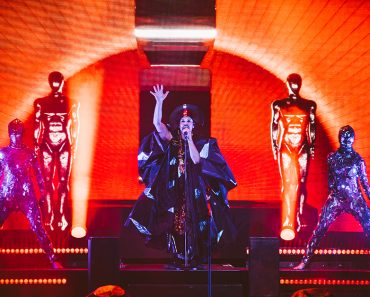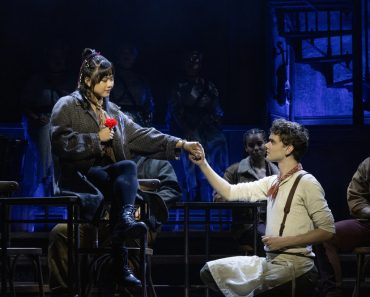While in the far reaches of the Balkans, last year’s representative for Greece at the Eurovision Song Contest, Marina Satti, was recounting the highs of her Eurovision experience in a televised interview, this year’s representative, Klavdia, was completing her second technical rehearsal on the stage of St. Jakobshalle.
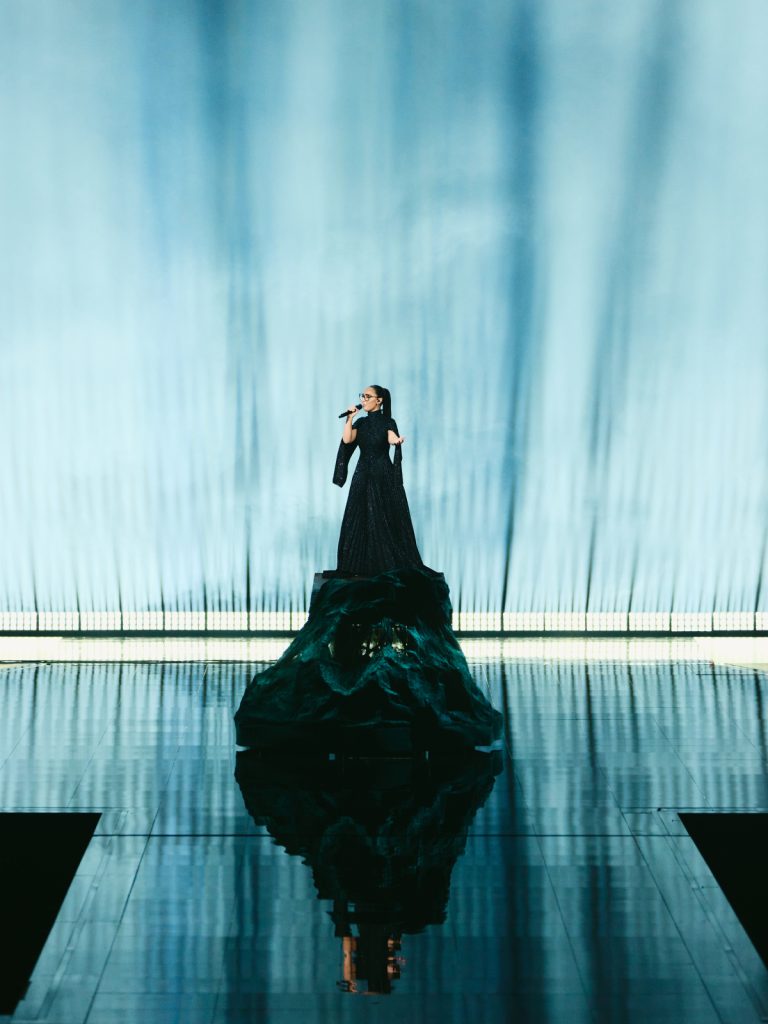
© EBU / Sarah Louise Bennett
ERT released the first snapshots from Klavdia’s rehearsal, which Fokas Evangelinos, who is in charge of the overall direction and aesthetics of the Greek entry this year, described as satisfactory.
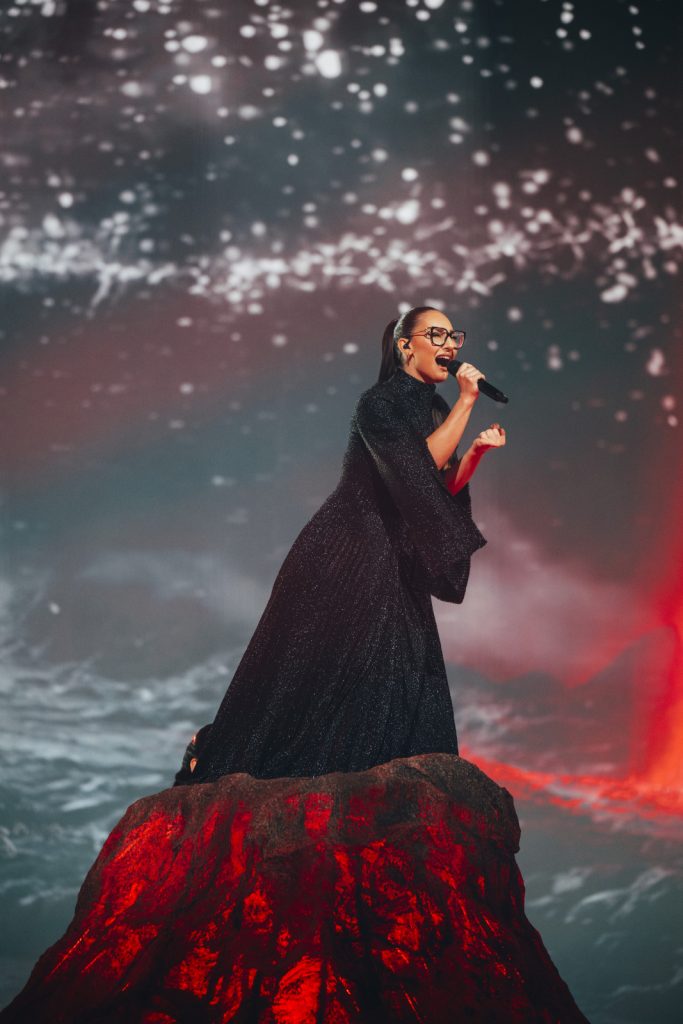
© EBU / Sarah Louise Bennett
Despite the discussions — okay, the grumbling — that began the day before yesterday about the notorious rock upon which the performer stands, there were no substantial or dramatic changes in the staging of the Greek entry.
Yes, the rock that has become even more famous than our performer remained as steady as… a rock. However, in the 30-second video released later in the afternoon by the organizers, we saw a sketch of a Caryatid and blue-and-white doves surrounding the singer, elements that undoubtedly elevated the visual impact of the stage set.
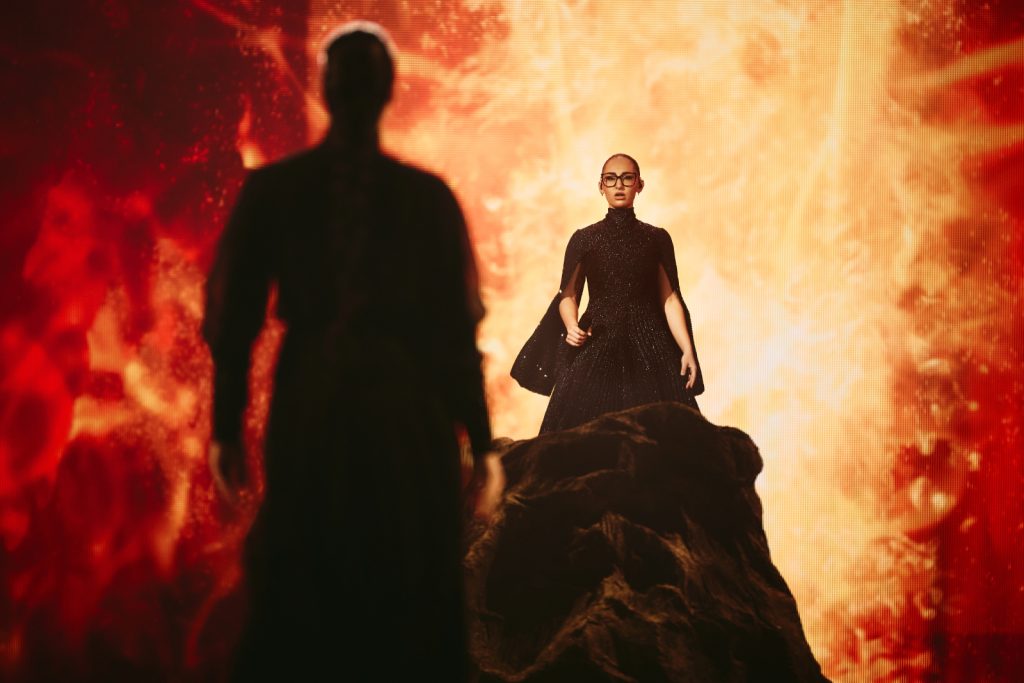
© EBU / Sarah Louise Bennett
It is worth noting that after the first technical rehearsal, Greece lost ground in the betting odds, dropping from 18th to 22nd place. However, the forecast for advancing to the final remained unchanged, as Greece is still ranked 6th in the second semi-final, which will take place on May 15.
As the days go by and with the first videos from the rehearsals of the 37 participating countries being released by the EBU, trends are beginning to form, and the preferences of the audience and journalists are becoming clearer.
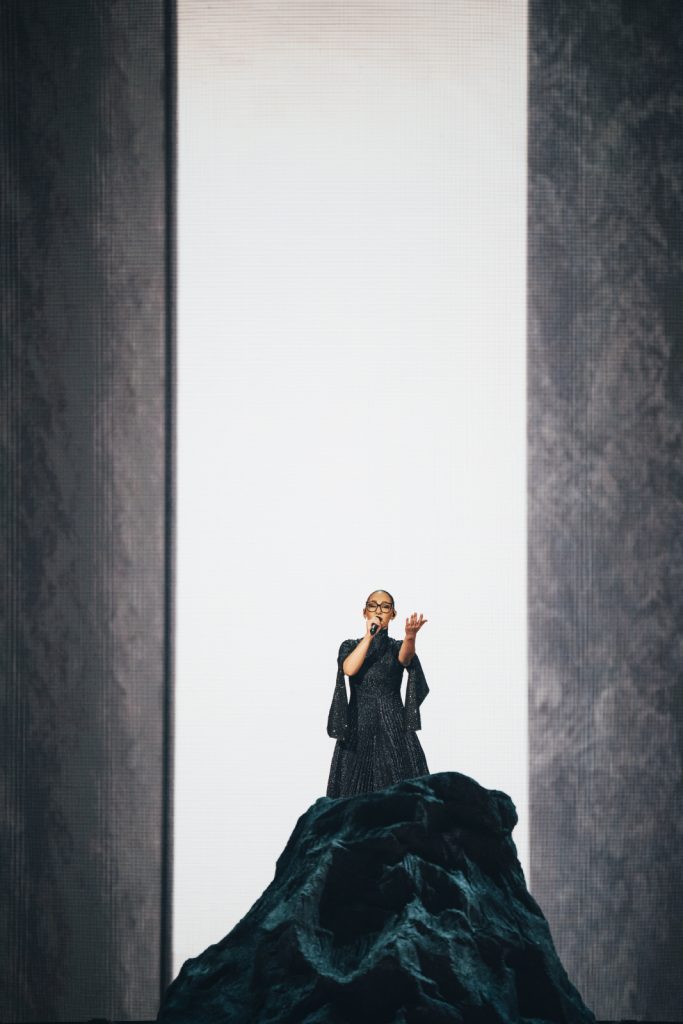
© EBU / Sarah Louise Bennett
Regardless of the favorites and underdogs, this year’s 69th Eurovision Song Contest is expected to be more political than ever — yes, even more so than last year. This sounds somewhat paradoxical, given the EBU’s recent efforts to depoliticize the contest with controversial new rules.
One of the main points of contention again this year is the participation of Israel, represented by Yuval Raphael, a survivor of the Hamas attack at the Nova Festival in October 2023. Just last Tuesday, 72 former Eurovision participants sent a letter to the EBU, demanding the expulsion of Israeli broadcaster KAN from the contest, citing the humanitarian crisis caused by Israel in Gaza.
The Eurovision veterans question, among other things, how it is possible that Russia was banned from the competition following its invasion of Ukraine in February 2022, yet the same is not being done in the case of Israel.
Amid protests and a debate likely to shadow the event in Basel until the end, the contest’s slogan, “United by Music,” chosen once again this year, can only be seen as a bitter irony.


